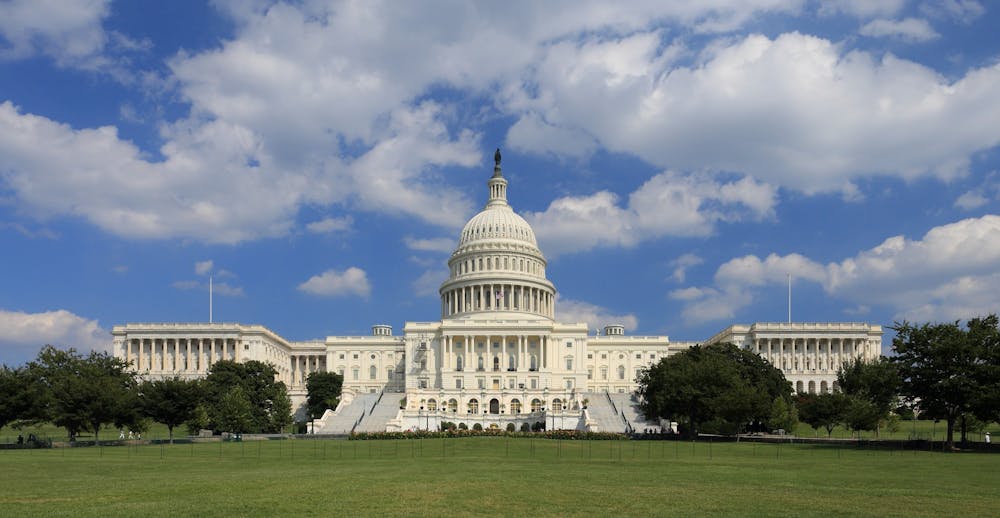The House Oversight Committee approved a bill to make Washington, D.C. the 51st state Feb. 11. As a result, the legislation will now advance to a vote by the House of Representatives. It’s been almost 30 years since Congress last voted on district statehood. It’s time to give Washingtonians the congressional representation they deserve.
Currently, D.C. congressional representation remains limited to one non-voting delegate in the House of Representatives. Eleanor Holmes Norton, who has served the District for 15 terms, is permitted to participate in House committees and speak on the House floor. However, she cannot vote on the final passage of legislation. As a result, the particular interests of the District’s residents are denied any sort of legitimate representation in Congress.
D.C. residents are primarily governed, not by elected officials, but by Congress and the President. Congress has jurisdiction over the District’s local budget and has the authority to annul any laws passed by the D.C. council. In the past, Congress has used this executive power to prohibit the D.C. government from legalizing both medical and recreational marijuana, allowing abortion coverage under Medicaid and funding needle exchange programs. The needle exchange ban was finally lifted by Congress in 2007, and the initiative has since prevented an estimated 120 new cases of HIV and saved the city approximately $44 million. Additionally, unlike in other states where local judges are elected by the state legislature, D.C.’s judges are appointed by the President even though just 4 percent of the D.C. population supported Donald Trump’s candidacy. In this way, D.C. residents — 600,000 of which live in the District permanently — do not practice the same form of local, self-governance to which other state residents are entitled.
D.C. statehood would allow for District residents to finally enjoy rights to adequate political representation without undermining the articles of the Constitution. First, it is important to recognize what the Constitution explicitly says about the District. Article I, Section 8 states that, “The Congress shall have power … To exercise exclusive legislation in all cases whatsoever, over such District— not exceeding ten Miles square — as may, by cession of particular states, and the acceptance of Congress, become the seat of the government of the United States.” The Constitution acknowledges the existence of a federal enclave which will be subject to congressional jurisdiction. However, while it does set a maximum size for this enclave, it does not establish a minimum, meaning reducing the size of the capital would be Constitutional.
The proposed bill for D.C. statehood makes clear that, “The territory of the State shall not include the area described in section 112, which shall be known as the “Capital” and shall serve as the seat of the Government of the United States.” Thus, this new state, known as the State of Washington, Douglas Commonwealth, will not include the area covering principal Federal monuments, such as the “White House, the Capitol Building, the United States Supreme Court Building, and the Federal executive, legislative, and judicial office buildings located adjacent to the Mall and the Capitol Building.”
Too often do Congressmen simply ignore the legitimacy of the arguments for D.C. statehood. “The Constitution would, in fact, need to be changed” said Republican Jim Jordan at a meeting to discuss the bill, indicating that he clearly had not given the issue serious consideration. Other Congressmen simply slander the District as too corrupt and crime-ridden for statehood. Kentucky Republican representative Thomas Massie even argued against D.C. statehood on the basis that such an initiative would make it harder for Hill staffers to find parking.
The fight for D.C. statehood is not one at odds with the Constitution. It is at odds with the Republican party. Since 1964, the first year it cast electoral votes in a presidential election, D.C. has supported Democratic candidates every year. As of now, the bill for DC statehood has 223 voting cosponsors. Not one is a Republican.
This is about so much more than party politics. As stated in the Declaration of Independence, “governments are instituted among men, deriving their just powers from the consent of the governed.” Yet, no such consent exists for Washingtonians. This is despite the fact that residents pay full federal taxes — more per capita than any state in the country. This is despite the fact that D.C. is already responsible for much of its own infrastructure including “driver licensure, vehicle inspections, occupational licensure, insurance and securities regulation, liquor control, consumer affairs, workers' and unemployment compensation, food and drug inspection, utility regulation, professional licensure, lottery, and weights and measures.” This is despite the fact that D.C. operates its own police force and school system and legal code. This is despite the fact that over 500 federal laws treat Washington, D.C. as a state.
D.C. is not just the home of politicians. It consists of 120 neighborhoods, in which over 50 percent of residents have resided for over twenty years. It is a city of immense linguistic and ethnic diversity being governed by an overwhelming white and affluent Congress. While white, rural Conservatives continue to be over enfranchised in both the Senate and the Electoral College, D.C. voters, which are majority non-white Democrats, have been excluded. These are tax-paying citizens who deserve to have their interests represented in our legislative body.
Esther Eriksson von Allmen is an Opinion Columnist for The Cavalier Daily. She can be reached at opinion@cavalierdaily.com.
The opinions expressed in this column are not necessarily those of The Cavalier Daily. Columns represent the views of the authors alone.







